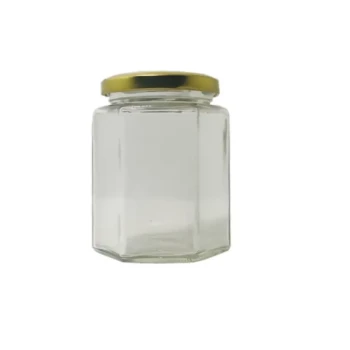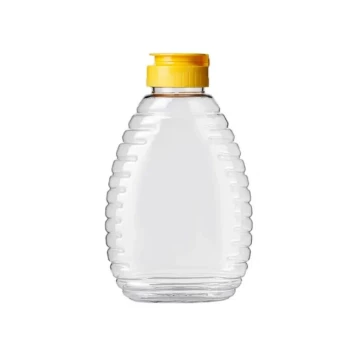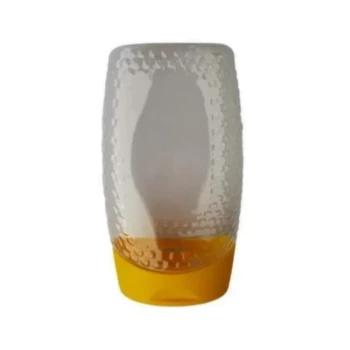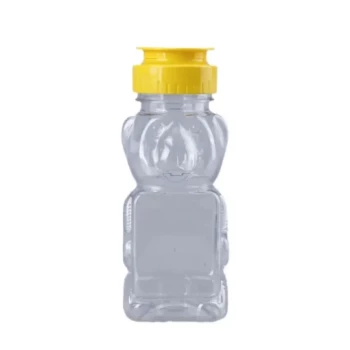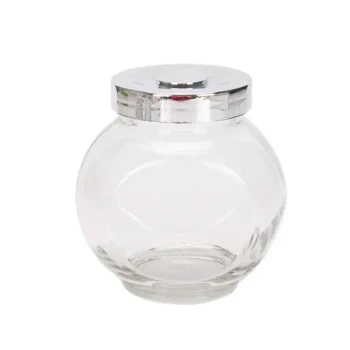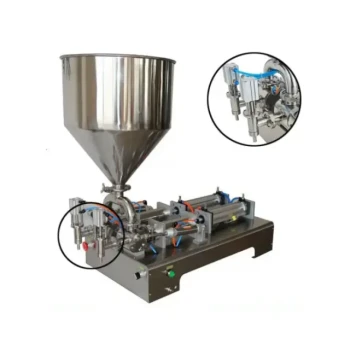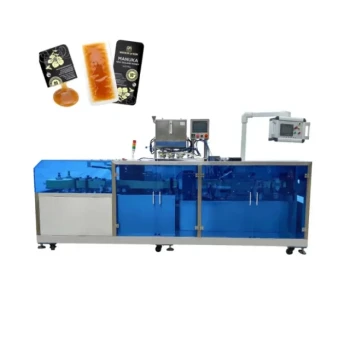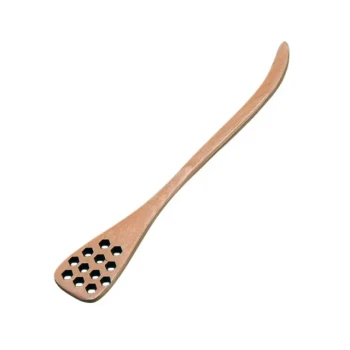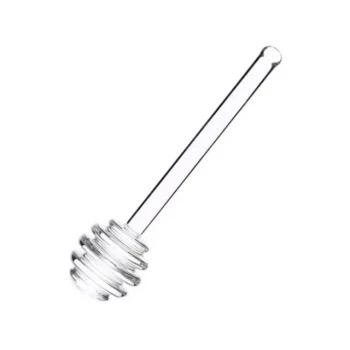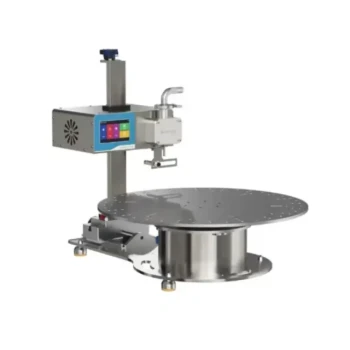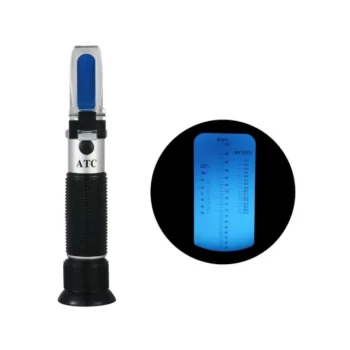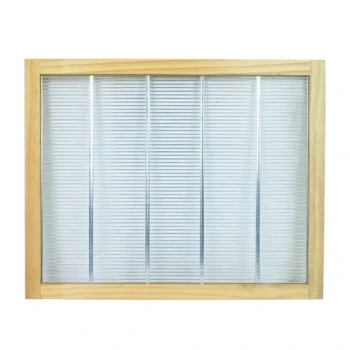Yes, leaving honey in heat does degrade its quality, but it won't "go bad" in the traditional sense of spoiling or becoming unsafe to eat. High temperatures accelerate the natural aging process, causing honey to lose its delicate aroma, alter its flavor, and darken in color over time.
While honey is renowned for its incredibly long shelf life, its quality is not invincible. The primary threat to its flavor, color, and nutritional benefits isn't spoilage from bacteria, but rather degradation caused by exposure to heat and moisture.
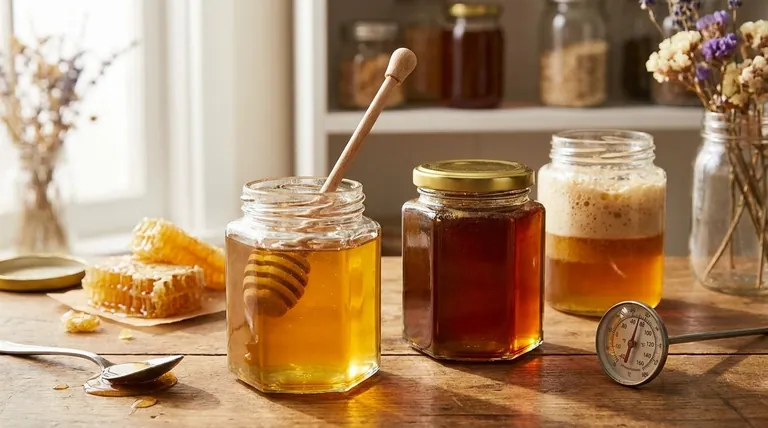
What "Going Bad" Means for Honey
To understand the effects of heat, we first need to define what it means for honey to "go bad." Unlike most foods, honey has a unique composition that makes it extremely resistant to spoilage.
An Environment Hostile to Spoilage
Honey's natural preservative qualities come from its low moisture content and high acidity. This combination creates an environment where bacteria, yeast, and other microorganisms simply cannot survive or reproduce.
Crystallization is Not Spoilage
Many people mistake crystallization for spoilage. This is a natural process where glucose separates from the water in the honey, forming solid crystals. It only affects texture, not safety, and can be reversed with gentle warming.
How Heat Accelerates Degradation
While honey doesn't spoil, heat acts as a catalyst, speeding up chemical changes that permanently diminish its quality.
It Darkens the Color
Prolonged exposure to heat causes the sugars in honey to caramelize. This process will gradually darken the honey, turning a light amber honey into a deep, dark brown.
It Alters the Flavor and Aroma
The most significant impact of heat is on taste and smell. The delicate, volatile compounds that give different types of honey their unique floral notes are destroyed by high temperatures, leaving behind a more one-dimensional, generic sweetness.
It Can Reduce Nutritional Value
For raw honey, heat is particularly damaging. It can destroy the beneficial enzymes and antioxidants that are a primary reason many people choose it over other sweeteners.
The True Risk: Moisture Contamination
The one factor that can truly spoil honey and make it unsafe is moisture.
How Moisture Causes Fermentation
Honey is hygroscopic, meaning it readily absorbs moisture from the air. If the container is not sealed properly and the honey's water content rises above approximately 18%, dormant yeast spores naturally present in honey can activate and begin to ferment the sugars.
Identifying Fermented Honey
Fermented honey will have a sour, alcohol-like smell and taste, and may appear foamy or bubbly. At this point, it has truly spoiled and should be discarded.
Best Practices for Honey Storage
Properly storing your honey is simple and ensures you preserve the quality you paid for.
- If your primary focus is preserving peak flavor and aroma: Store honey in an airtight container in a cool, dark place like a pantry, away from sunlight and heat sources like stoves.
- If your honey has crystallized: Gently warm the jar in a bowl of warm (not boiling) water to dissolve the crystals without damaging the honey's quality.
- If your primary focus is long-term preservation: The most critical step is ensuring the lid is always tightly sealed to prevent moisture from getting in.
Protecting your honey from heat and moisture is the key to enjoying its full flavor for years to come.
Summary Table:
| Effect of Heat on Honey | Key Impact |
|---|---|
| Color | Darkens due to caramelization of sugars. |
| Flavor & Aroma | Destroys delicate floral notes, leaving generic sweetness. |
| Nutritional Value | Can reduce beneficial enzymes and antioxidants in raw honey. |
| Safety | Does not cause spoilage; the real risk is moisture contamination leading to fermentation. |
Protect Your Honey's Quality with Professional-Grade Storage Solutions
For commercial apiaries and beekeeping equipment distributors, maintaining honey quality from hive to shelf is critical for your brand's reputation and profitability. HONESTBEE supplies durable, airtight containers and temperature-controlled storage equipment designed to protect honey from heat degradation and moisture contamination.
We help you preserve the delicate flavor, color, and nutritional profile that your customers value.
Ready to enhance your honey preservation process? Contact our experts today to discuss wholesale solutions for your operation.
Visual Guide
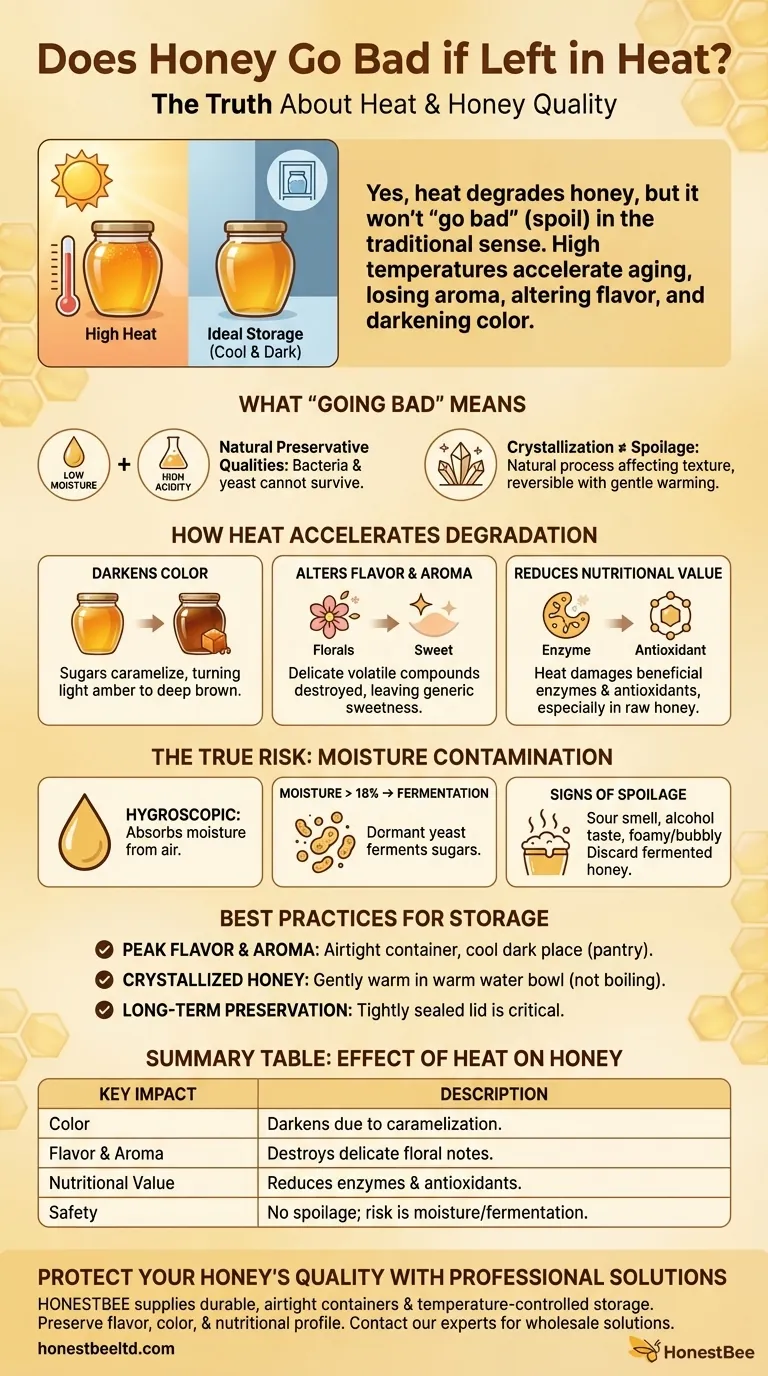
Related Products
- Hexagonal Glass Honey Jars with Metal Lug Caps Elegant Versatile Packaging
- Squeezable No-Drip Beehive-Shaped Honey Jars with Flip-Top Cap
- Inverted Squeezable Honey Jar with No Drip Flip Top Cap for Easy Pouring
- Classic Honey Bear Jars with Flip Top Dispensing Cap for Liquid Sweeteners
- Classic Drum Shaped Glass Honey Jar with Airtight Lid
People Also Ask
- What is done with the honey after extraction and filtering? From Purification to Perfect Packaging
- Why are Glass Jars preferred as storage equipment for honey? The Ultimate Choice for Purity and Long-Term Quality
- What key functions do high-quality packaging materials serve? Unlock the Commercial Potential of Your Honey
- How does the appearance of glass jar packaging affect the sales and perception of honey? Boost Your Premium Brand Value
- Why is it necessary to use storage containers with tight-fitting lids? Prevent Honey Spoilage and Loss
